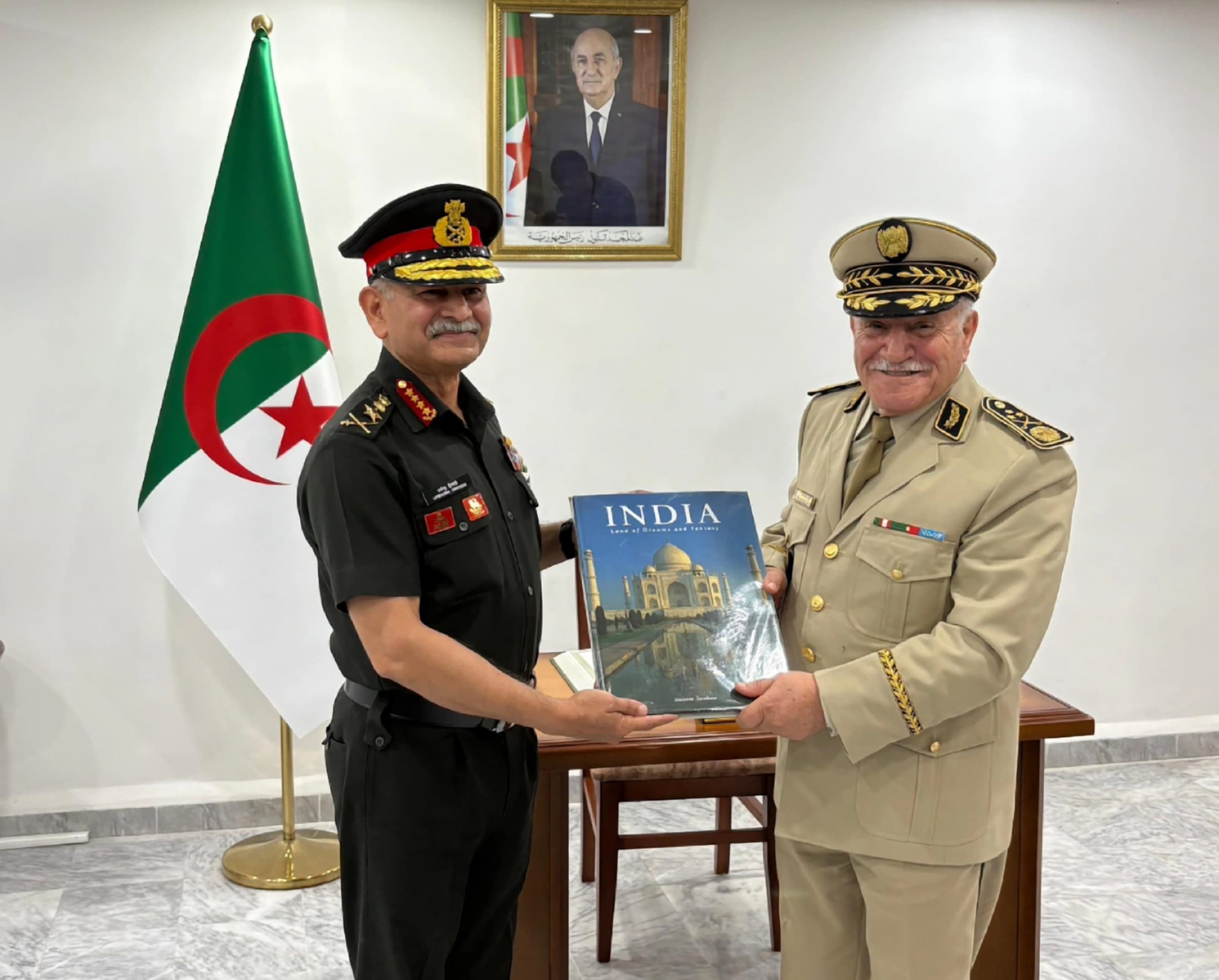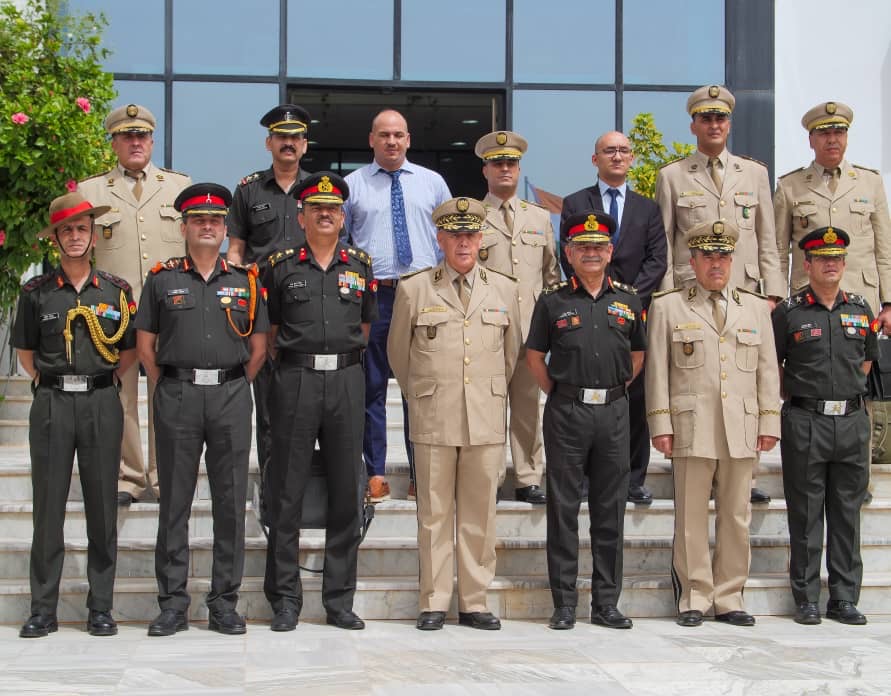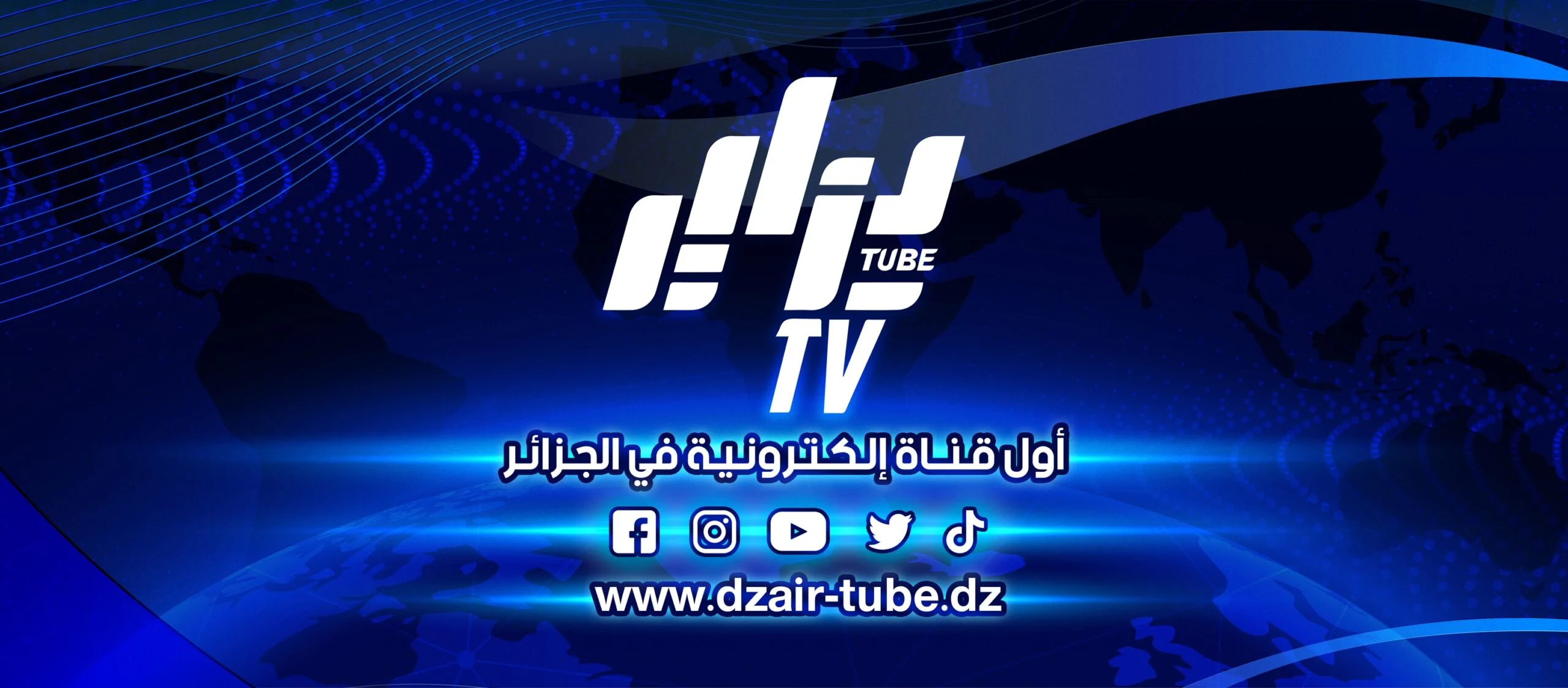Indian Army Chief to Le Jeune Indépendant: “Algerian and Indian Armies Face the Same Challenges”
Exclusive Interview with General Upendra Dwivedi, Chief of Staff of the Indian Army
-
Interview conducted by Nassim Mecheri – Le Jeune Indépendant
-
Translated into English by Dr. Hana Saada
Le Jeune Indépendant: This is the first-ever visit of an Indian Army Chief of Staff to Algeria. What are your first impressions, and how do you envision the evolution of defence relations between the two countries?
General Upendra Dwivedi: India and Algeria have always shared warm and close ties. Our nations are bonded by a past scarred by colonialism. India supported Algeria from the earliest days of its liberation struggle—the FLN even opened an office in India in the late 1950s. India was among the very first to recognize Algeria as an independent and sovereign state.
In the 1960s, India’s leadership within the Non-Aligned Movement was highly valued by Algeria. Our foreign policies were shaped on the same principles of non-alignment, which still inspire our relations today.
Now, India and Algeria are facing shared security challenges that bring us closer. In October 2024, the President of India made a historic first visit to Algeria, followed by the visit of our Chief of Defence Staff. On that occasion, we signed a Memorandum of Understanding on defence cooperation.
Earlier this year, in February, we had the honor of welcoming General Saïd Chanegriha, Minister Delegate for National Defence and Chief of Staff of the ANP, to India during the Aero India exhibition. His delegation visited four Indian cities, further consolidating our ties. The successful Defence Seminar in July 2025 is a clear illustration of this growing partnership.
During my visit to Algeria, I held highly productive exchanges with General Mustapha Smaili, Commander of the Land Forces. The understanding we reached provides a solid foundation for future military cooperation. I was also deeply impressed by the professionalism I witnessed at the Cherchell Military Academy, which offers valuable lessons for our own institutions.
Likewise, my discussions with Major General Aouamari, Chief of Military Training, and Major General Badaoui Abdelghani, Director of Military Industries, were extremely fruitful. I am convinced these exchanges will lead to concrete cooperation in military and defence industry fields, serving the mutual interests of both armies.

Le Jeune Indépendant: In your view, what prospects exist for deepening operational exchanges and cooperation in training between the two armies?
General Upendra Dwivedi: The Indian Army places great importance on strengthening its ties with the Algerian People’s National Army. Both our countries are confronted with similar security challenges in today’s geopolitical environment: terrorism, unstable borders, territorial and coastal security, and domestic security.
I see enormous potential in operational exchanges, particularly in counterterrorism, mechanized warfare, peacekeeping, and emerging domains such as artificial intelligence, drone systems (UAS), and anti-drone technologies. These could materialize through bilateral exercises, expert seminars, and instructor exchanges.
There is also convergence in certain categories of defence equipment, opening opportunities for cooperation in maintenance and sustainment. Training cooperation, however, is the cornerstone of our defence ties. We would welcome expanded officer exchanges, mutual participation in our training courses, and the sharing of best practices. Tailored training teams could also be deployed to meet Algeria’s specific needs.
Such collaboration would not only enhance professional capacities and interoperability but also contribute significantly to regional and global security.
Le Jeune Indépendant: On April 22, 2025, the terrorist attack in Pahalgam claimed the lives of 26 innocent tourists. In May, you led Operation SINDOOR. What were its objectives, and were they achieved?
General Upendra Dwivedi: The Pahalgam attack was a tragedy that shook the Indian nation and the world. It was the deadliest assault on civilians in India since the Mumbai attacks of 2008. The perpetrators, linked to Lashkar-e-Taiba (LeT) and its affiliate, the Resistance Front (TRF), operated from a neighboring state. India was compelled to act decisively.
Operation SINDOOR targeted nine terrorist camps, including strategic headquarters of LeT and Jaish-e-Mohammed (JeM). The strikes were precise, focusing solely on terrorist infrastructure while deliberately sparing civilian and military sites—a measured and proportionate response.
The objectives were clear: justice for Pahalgam’s victims, deterrence against future aggression, and the dismantling of terrorist infrastructures. These goals were fully achieved: nine major camps destroyed, key leaders eliminated, and over a hundred terrorists neutralized—all without civilian casualties.
The operation demonstrated India’s ability to act with firmness yet restraint. Terrorist incidents in Jammu and Kashmir dropped sharply in the months that followed, and the morale of our nation was strengthened. The message was unambiguous: India will act responsibly, but with determination.
Le Jeune Indépendant: India has advanced significantly in defence technology and joint-force integration. Do you foresee opportunities for collaboration with Algeria in these areas?
General Upendra Dwivedi: Absolutely. Under the Atmanirbhar Bharat initiative (“Self-Reliant India”), our armed forces have achieved remarkable progress in defence industrialization, joint-force integration, and advanced technologies. Public enterprises, major industries, SMEs, and start-ups now deliver combat-ready solutions for multidomain operations.
This dynamic also positions India as a trusted exporter of advanced defence systems. For Algeria, this means reliable and effective solutions tailored to real-world conditions.
Opportunities for collaboration are vast—joint projects, military exercises, capacity-building programs, and research and development. India is ready to align these mechanisms with Algeria’s specific priorities.
We already shared a portfolio with Algeria’s armed forces showcasing India’s progress in strategic autonomy and innovations, particularly under the iDEX initiative. Joint exercises, officer exchanges, and R&D partnerships can significantly deepen our defence ties.
Le Jeune Indépendant: Looking ahead, what roadmap do you see for the future of Algerian-Indian defence cooperation?
General Upendra Dwivedi: The future is promising. We need a multidimensional approach to elevate our cooperation. Algeria’s armed forces are highly respected for their professionalism and robust capabilities. Both armies share expertise in border management, mechanized warfare, counterterrorism, humanitarian assistance and disaster relief (HADR), and safeguarding national interests.
The roadmap rests on four pillars:
-
Training – Expanded officer exchanges, specialized military curricula, and expertise-sharing in cutting-edge areas such as cyber, AI, UAS, and counter-drone measures.
-
Operational Interoperability – Joint exercises alternately hosted in Algeria and India, to strengthen tactical coordination.
-
Regular Exchanges – Institutionalized staff dialogues and high-level visits to maintain continuity and strategic alignment.
-
Defence Industry Cooperation – Partnerships in production, maintenance, and innovation to support both nations’ military capabilities.
This roadmap is designed to build a durable and mutually beneficial partnership, advancing our shared strategic interests.

Le Jeune Indépendant: Is there a concluding message you wish to convey?
General Upendra Dwivedi: I return to India with great satisfaction and confidence in the future of our partnership. Algeria and India will undoubtedly become close military partners, especially with the upcoming state visit of President Abdelmadjid Tebboune to India in 2026. The foundations are strong, the prospects are vast, and together we will build a strategic relationship that serves both our nations.

📡🌍 | About Dzair Tube Media Group | 🌍📡
━━━━━━━━━━━━━━━━━━━━━━━━━━━━━━━
📰 Dzair Tube is a trailblazer in Algerian digital journalism, delivering high-quality content in Arabic, French, and English. With more than 📈 500,000 daily clicks, it ranks among the most influential media platforms in the country.
🏆 Awarded the President of the Republic’s Prize for Professional Journalist in the Electronic Press category (🗓 October 22, 2022), Dzair Tube is widely recognized for its editorial excellence and integrity.
📱 Massive Digital Reach:
🔴 350,000+ YouTube subscribers
🔵 6 million+ followers across Facebook pages
📸 450,000+ Instagram followers
🎥 Operating from state-of-the-art studios, Dzair Tube broadcasts rich and diverse programming, including:
🗞 News | ⚽ Sports | 🎭 Entertainment | 🕌 Religion | 🎨 Culture
🗣️ Featuring interactive talk shows and exclusive interviews with prominent figures from politics, business, arts, and more, Dzair Tube serves as a key platform for public discourse and civic engagement.
📰 Its print sports daily, “Dzair Sport,” enjoys over 50,000 daily downloads via the official website—further cementing the platform’s multimedia leadership.
🎖️ Honored with the Media Leadership Award by the former Minister of Communication, Mohamed Laâgab, and celebrated at the Hilals of the Television awards, Dzair Tube continues to lead with innovation, influence, and impact.
━━━━━━━━━━━━━━━━━━━━━━━━━━━━━━━
🌐 Stay Connected:
🔗 Website: www.dzair-tube.dz
🔗 English: www.dzair-tube.dz/en
📲 Follow us on Facebook | Instagram | YouTube
━━━━━━━━━━━━━━━━━━━━━━━━━━━━━━━




